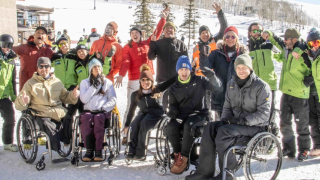Atomized Content
Objective
Body
This study aims to understand the mechanisms of a novel intervention involving breathing short durations of low levels of oxygen for persons with multiple sclerosis (MS). This intervention with low levels of oxygen is called Acute Intermittent Hypoxia (AIH), the levels of oxygen experienced are similar to breathing the air on a tall mountain, for less than 1 minute at a time. Previous studies have shown that AIH is a safe and effective way to increase strength in persons with MS. Here the investigators aim to look at brain activation and ankle strength before and after AIH to gain a better understanding of how the AIH may improve strength in those persons with MS.
Who Can Participate
Body
- Diagnoses of relapsing form of MS (including relapsing-remitting MS and secondary-progressive MS)
- Expanded Disability Status Scale (EDSS) score of at least 3 and no more than 6.5
- Motor Functional System Scale (FSS) between 2-4
- Relapse free for at least 1 year
- Age ≥ 18 years and ≤ 75 years
- Safe to be scanned based on MRI questionnaire
- Participants using dalfampridine will be eligible if taking the same daily dose for at least 2 months prior to screening
Exclusion Criteria
Body
- Active contrast-enhancing MS lesions, or diffusion positive lesions suggestive of acute cerebrovascular disease on baseline MRI scan
- Uncontrolled hypertension (Systolic between 85 and 140, diastolic between 90 and 55)
- History of epilepsy
- Chronic obstructive pulmonary disease
- Uncontrolled Sleep apnea
- Pregnancy
- Diagnosis of Long COVID
Compensation
Participants will be paid after each session. If the participant completes all sessions, compensation will be approximately $800.
Age Range
18 - 75



